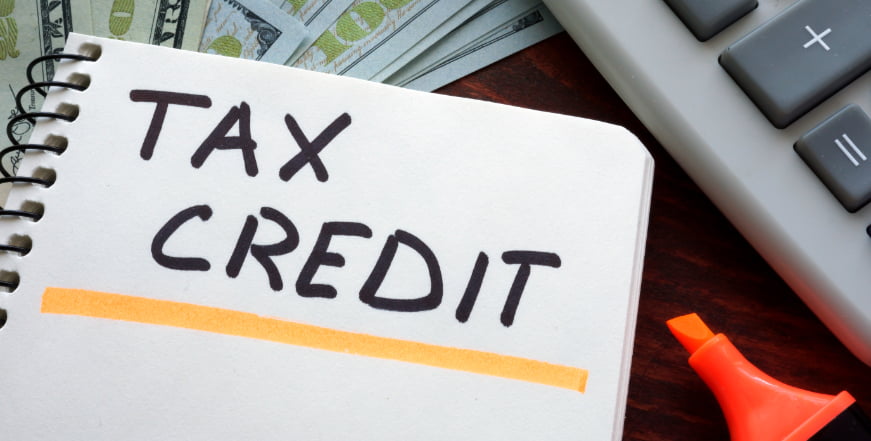People think of nature and reducing the negative impact of humans on the planet when they hear sustainability. They believe that it includes:
- Saving natural resources
- Lowering pollution and waste
- Lessening climate change
But, that is not all renewables is about. It is about providing for the needs of the present while allowing future groups of people to meet their needs. Also, it includes making and keeping values under which humans and nature are living in a friendly and fair way.
It also includes social and economic concerns. It involves making sure that economic growth and developments do not come at the expense of community fairness, human rights, or long-term monetary stability.
Ultimately, renewables are about making a world that is strong and robust. It will be able to provide for the needs of all people. Renewables can do so without compromising the health of the planet or the well-being of future generations.

Some of the energy tax credits for sustainability have been in place longer than others. More recent tax credits came with the Inflation Reduction Act.
Companies and Sustainability
There are many companies that have set goals in renewables in recent years. Some of these companies are well known companies. That includes:
Patagonia: This outdoor clothing company has a mission statement that includes;
- Making the best product
- Do no unnecessary harm
- Use business to promote and apply answers to the environmental crisis
Tesla: This electric vehicle manufacturer plans to speed up the transition to sustainable energy. They will do this by producing electric cars, solar panels, and energy storage and management systems.
Unilever: This consumer goods company has set large-scale sustainability goals. Goals that will lower its environmental impact and increase social equity. That includes a vow to reach net-zero emissions by 2039.
Apple: This technology company has set a goal to become 100% carbon neutral across its entire supply chain, products, and operations by 2030.
IKEA: This furniture retailer has set a goal to become a circular and climate-positive business by 2030. This means it will reduce its greenhouse gas emissions and eliminate waste while increasing its use of renewable energy.
Nestle: This food and beverage company has set renewable targets. Targets that include the use of renewable energy, the reduction of greenhouse gas emissions, and the conservation of natural resources.
Accenture: provides services in strategy, digital, technology, and operations. Plus, they have lowered each worker’s carbon emissions by 52%.
The Coca-Cola Company: This beverage company has set a goal to reduce the carbon footprint of its beverage production by 25% by 2025.
Black & Decker: A company of customer products that is committed to improving the sustainability of our;
- Operations
- Products
- Communities
- Suppliers
- Customers
Also, we are vigilant about our renewables initiatives. We place a priority on maintaining an open dialogue with all of our stakeholders to meet our goals.
ExxonMobil: is committed to cheap and sustainable energy solutions. Those solutions are needed to improve global wealth. We invest in technology and communities to bring the world better energy.
Estée Lauder: A makeup company that sends zero waste to landfills. All their waste is recycled or turned into energy by incineration. This company plans to impact the well-being of 10 million individuals. Those 10 million will see sustainability through programs in regards to health, education and environment.
Intel: This well-known technology company reuses 75% of its trash. The company tries to achieve zero hazardous waste going to landfills.
Seventh Generation: a note pad, private care, and washing products company. The company has been dedicated on being ecological since being founded in 1988.Their mission is to refresh the planet into a healthy, sustainable and fair place for the next seven generations.
These are just a few examples of companies that are working to reach renewable goals. Many other companies have also made promises to reduce their environmental impact and improve social equity.
Sustainability Tax Credits

Sustainability tax credits are incentives provided by governments to individuals and businesses. Those are invested in sustainable technologies and practices. These tax credits are meant to motivate the taking on of environmentally friendly habits and technologies and to stimulate sustainable economic growth.
There are many different types of renewable tax credits available, depending on the jurisdiction and the specific goals of the program. There are four types of sustainability tax credits they include
- Advanced construction
- Shipping and fuels
- Hydrogen and carbon capture
- Renewable energy
Some common examples of these tax credits include:
Renewable energy tax credits: These credits are designed to encourage the production and use of renewable energy sources such as solar, wind, and geothermal power.
Energy efficiency tax credits: These credits are offered to people and businesses that invest in energy-efficient equipment. Equipment such as:
- Heating and cooling systems
- Appliances
- Lighting
Green building tax credits: These credits are designed to promote the construction of energy-efficient and sustainable buildings. Those buildings include homes and commercial buildings.
Electric vehicle tax credits: These credits are offered to individuals and businesses that purchase electric vehicles or install electric vehicle charging stations.
Sustainable agriculture tax credits: These credits are offered to farmers and other agricultural businesses that adopt sustainable farming practices. Those sustainable farming practices include conservation tillage, cover cropping, and organic farming.
These are just a few examples of renewable tax credits that may be available. The availability and amount of these credits can vary depending on the jurisdiction and the specific program requirements.
It’s important to research the specific tax credits available in your area. You should consult with a tax professional to determine if you are eligible for any credits.
Sustainability in your business will help you:
- Bring in new customers
- Reduce costs for energy
- Keep the planet safe
This will allow your business to respond to social and economic concerns that will impact future generations.








